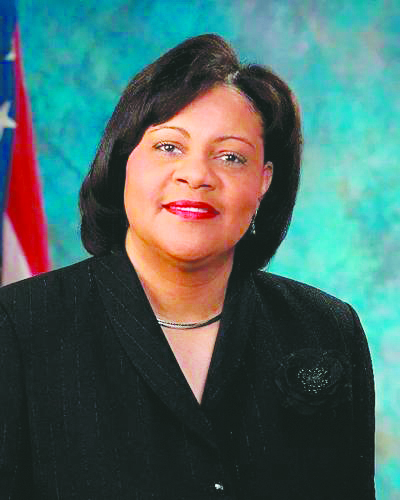Helping Americans start, build and grow businesses
It’s no secret that small businesses have a partner in the U.S. Small Business Administration. The federal agency has resources and programs to help open and expand businesses.
According to Janita R. Stewart, district director of the Mississippi Office, there’s an uptick in the number of new businesses.
“There seems to be a hunger for entrepreneurship,” said Stewart. “Some people are meant to be their own boss and they should be certain as best as they can that this is what they were intended to do. SBA has a host of resources and programs available to support someone who desires to pursue entrepreneurship and all they need to do is request this assistance and the SBA team will be happy to help.”
If someone is interested in starting a business, The SBA recommends beginning with market research.
“We know that many well-intended entrepreneurs seek out financing first. However, the proven and better first step in the process is to conduct market research, which will reveal whether there’s an opportunity to turn the idea into a successful business venture,” said Stewart. “If so, follow through with developing a sound business plan which serves as a roadmap laying out where you are now, where you’re trying to go, and the right steps to take to get there.”
There are others steps that should be followed on the path toward business ownership, and the SBA collaborates with and funds various small business resource organizations that can help along the way. These organizations include the network of Small Business Development Centers (mssbdc.org) and their 10-Step Process; score.org; the Veterans Business Outreach Center (VBOC) vboc.msstate.edu; Women’s Business Center at Alcorn State University alcorn.edu/wbc; and the Women’s Business Center at Jackson State University jsums.edu/wbc.
Stewart said these organizations provide expert training, counseling, management and technical assistance to small businesses and entrepreneurs and do so free and confidentially. “After getting the assistance to start, then the business could reach out to SBA for financing via our various small business lending programs.”
As for businesses wanting to expand, Stewart said it depends on what the specifics of the expansion are.
“If the need is for financing, SBA can assist with that via our 7(a) Guaranty and our 504 Certified Development Company (CDC)—a fixed asset loan program with a threshold of $5.5 million and is where a SBA lender, the CDC and SBA, and the small business inject a certain amount of financing for the expansion,” she added. “Typically, this program is used for brick and mortar projects such as restaurants, hotels, medical offices, etc.”
Financing remains one of the primary challenges facing small businesses.
“Oftentimes, a small business may not qualify for a business loan from a traditional lender, sometimes due to insufficient credit, insufficient collateral in the lender’s view, being a start-up, or being in an industry that a lender may not ordinarily finance,” said Stewart. “In cases where a small business that is credit-worthy, has the requisite management and technical skills, but is unable to pledge a sufficient amount of collateral to help secure a loan, they have an ideal means by which SBA loan programs, specifically the 7(a) Guaranty Loan Program is beneficial to small businesses.”
In general, SBA guarantees the loan to the lender who makes the loan to the small business. Loan amounts go up to $5 million and SBA’s guarantee goes up to 85% on most loans. “With that, you can see that SBA takes on the majority of the risk. Also, another challenge for small businesses are that certain business industries continue to have issues in obtaining and steadily maintaining employees,” said Stewart.
One area that is often either overlooked or is not well-known, she said, is the SBA’s certifications and federal government contracting programs. The federal government is the largest buyer of goods and services in the world to the tune of about $500 billion annually.
“SBA oversees 24 major federal buying agencies (Dept of Defense, Commerce, HUD, USDA, Treasury, Homeland Security and others) to ensure that these agencies provide a fair amount of federal government contracting opportunities to small, disadvantaged, women-owned, HUBZone, and Service Disabled Veteran-owned small businesses,” explained Stewart. “Being a federal government contractor can mean a lucrative stream of income for small businesses that many are not taking advantage of and can also assist in repaying their business loan.”
Steward encourages anyone interested in receiving more information about the SBA services and programs to contact the Mississippi District Office at 601.965.4378 or visit sba.gov/ms.


